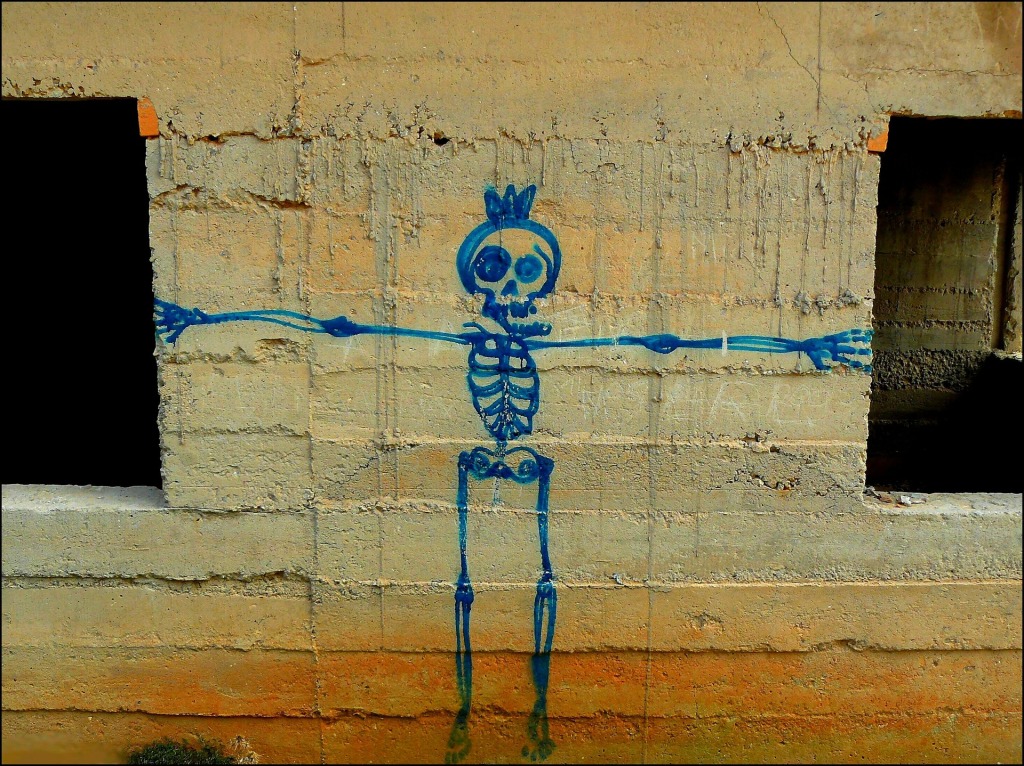“Refraction”
I have seen a great deal of death and loss. For my own sanity and preservation I had to explore death, to understand it and craft for it a personal mythos. This poem seeks to do that, to make death more tangible not by simplifying it, but by complicating it, adding to its ethereal nature, to understand it not like something we might hold, but like something which holds (the difference between how we conceptualize a stone in our palm versus how we conceptualize wind). I don’t know why concrete fact is often seen as more comforting. The realization that we don’t know what we don’t know is a most exciting and encouraging one to me. Death could be anything we have thought of or that we have not. I want to sit with death and ask its name, but since it won’t answer I call out to the dark and let the echoes respond. I let the questions be their own answers. I inhabit wonder, and my lack of understanding becomes what I know.

Refraction
I have come to believe death is a relationship
between two objects. Though, perhaps it is more
like a message or sudden idea. For instance,
the blade meets the body for the first time, they strike
up a conversation. Death steps from each of their mouths
and then rises in an aggregate of shadow between them.
Or the blade, like a letter, carries the notion,
which the body has never even considered. The knife
does not kill the body, it simply informs it that death is possible,
a sudden light flooding the room,
mortality is illuminated inside of us, the one corner
of the house we never knew to exist
until all other rooms had darkened. Once, I saw myself
in a storefront window and felt lost somewhere in the middle,
a single word stuck between two people. I stared at my reflection
and wondered if dying would be as simple as shattering
a window. Once, I couldn’t find myself in a house
of mirrors, by which I mean I was everywhere.
I knelt beside the lake and drank
the water for I was in it. I threw a stone
through the shop window for I was in it.
When my mouth grew dry, I fed myself the knife,
as though it were a second tongue, for I was in it.
These are the ways the body misinterprets thirst.
I knew a man who drank himself
to death. It was not the alcohol that killed him,
it was his reflection which never left the glass,
not even as it fell and the whiskey carried him
across the floor, refracting again and again
into the dark of the window. We found death
is just a thinning. Scrubbing away a stain
on a shirt until the shirt itself is gone
and the hand moves in a circle as if cleaning the air.
—
 Michael Lee is a Norwegian American writer and author of the chapbook, Secondly. Finally, which won the 2014 David Blair Memorial Prize (Organic Weapon Arts) and in which this poem appears. Having received grants from the Minnesota State Arts Board, the LOFT Literary Center, and the Metropolitan Regional Arts Council, his work has appeared or is forthcoming in Ninth Letter, Hayden’s Ferry Review, Indiana Review, Phoebe, Copper Nickel and The Carolina Quarterly among others. He attends the Harvard Graduate School of Education.
Michael Lee is a Norwegian American writer and author of the chapbook, Secondly. Finally, which won the 2014 David Blair Memorial Prize (Organic Weapon Arts) and in which this poem appears. Having received grants from the Minnesota State Arts Board, the LOFT Literary Center, and the Metropolitan Regional Arts Council, his work has appeared or is forthcoming in Ninth Letter, Hayden’s Ferry Review, Indiana Review, Phoebe, Copper Nickel and The Carolina Quarterly among others. He attends the Harvard Graduate School of Education.
